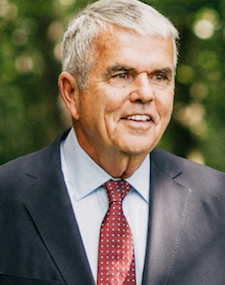By Don Keelan
This May and June, for tens of thousands of seniors in high school and college, they will be missing a major event in their lives — Graduation Day, and with it, the traditional commencement address.
It was not uncommon for most commencement speakers to describe to the graduates a picture of what kind of world they were about to enter. The issues were broad and many. They would deal with poverty, health care, race, economy, military conflicts, homelessness and politics — at the national and international level.
However, this year there will be no commencement addresses. The Wall Street Journal recently asked several well-known Americans what they would talk about if they were to be commencement speakers. The above was a partial list.

Don Keelan
But why wait for something that will not happen? This year’s graduates should take it upon themselves to write their own commencement address. They are in a much better position in which to do so. They have the time while we are all staying isolated. Furthermore, they are living through a crisis that is worldwide and one that we haven’t witnessed in 75 or more years.
Some insight for this comes from what Rick Atkinson wrote in the WSJ on the 75th anniversary of the World War II German surrender, where he quotes the legendary war correspondent Ernie Pyle (1900-1945). Pyle, who witnessed firsthand the war devastation in Europe and in the Pacific, noted, “Yet those who outlived the war, would have to learn how to reassemble our broken world.”
While we may not have a world “as broken” as that which was evident at the aftermath of World War II, once we are through the current pandemic it will indeed be a different world than the one that existed at the beginning of the decade.
For the graduates, they should take the position that they are in charge of getting the world, our country, and state and local economies back to where they had been before the pandemic. They could address the issues faced by a local inn that needs to bring back its guests, rebuild its inventory and find the funds to promote itself now that it is opening for business.
If a local business is not their first choice, then select a local or state nonprofit theater or museum that has had to close and is in dire need of funding and patrons to survive the year, if it will at all.
The list is endless with so many businesses, nonprofits and local municipalities having to figure out how they will continue to function. And this is just at the state and local level, without detailing what must be done at the national and international level.
Upon graduation this May and June, the Class of 2020 has been given a difficult, if not impossible, task to deal with. And maybe they might find insight and inspiration at what was said at a commencement address that was presented 73 years ago.
It was on June 5, 1947, at Harvard University, and General George C. Marshall (1880-1959) addressed the graduating class. Then Secretary of State Marshall had firsthand knowledge of the economic, physical, political and individual plight of Europe. Two years after the war had come to a close, poverty, starvation, and dislocation was still rampant throughout the war-ravaged countries, with no end in sight.
Marshall told the graduates that what was needed was something that had never been done before — a package of aid from America in the billions of dollars to rebuild the warring countries’ economic base. Ten months later, the U.S. Congress adopted the (European) Economic Cooperation Act, commonly referred to as the Marshall Plan.
This year’s crop of high school and college graduates don’t have to wait to hear what their planned commencement speaker might have said to them about their future. They can address it themselves by writing their own speech and sharing it with all of us. It is their future. How will they deal with it?
Don Keelan writes a bi-weekly column and lives in Arlington, Vermont.


